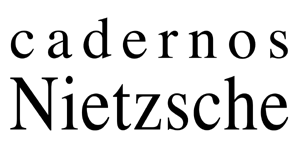Resumo em Português:
Resumo A ambiguidade do título deste artigo reflete o caráter multifacetado de um problema que tem no seu horizonte, por um lado, a dura crítica de Nietzsche ao sujeito e, por outro, as possibilidades abertas por essa crítica, seja na direção de um sujeito plural, tese claramente delineada nos escritos de Nietzsche, seja no sentido de um sujeito ficcional, que aparece em seus textos contrariando a ideia de sujeito criticada por ele. Tendo em vista, portanto, o caráter controverso da questão, o propósito deste estudo é apontar alguns traços centrais da crítica de Nietzsche ao sujeito no intuito de mostrar que é justamente a partir dessa crítica que são delineadas novas possibilidades para pensar e utilizar a ideia de sujeito em seus escritos.
Resumo em Inglês:
Abstract The ambiguity of the title of this article reflects the multifaceted character of a problem that has in its horizon, on the one hand, Nietzsche's harsh critic of the subject and, on the other hand, the possibilities opened by this critic, either in the direction of a plural subject, a thesis clearly delineated in Nietzsche's writings, or in the sense of a fictional subject, that apears in the text of the philosopher, clearly contradicting the idea of subject criticized by him. Considering, therefore, the controversial character of the question, the purpose of this study is to point out some central features of Nietzsche's critique of the subject in order to show that it is precisely from this critique that is precisely from this critique that new possibilities are outlined to think and use the idea of subject in his writings.
